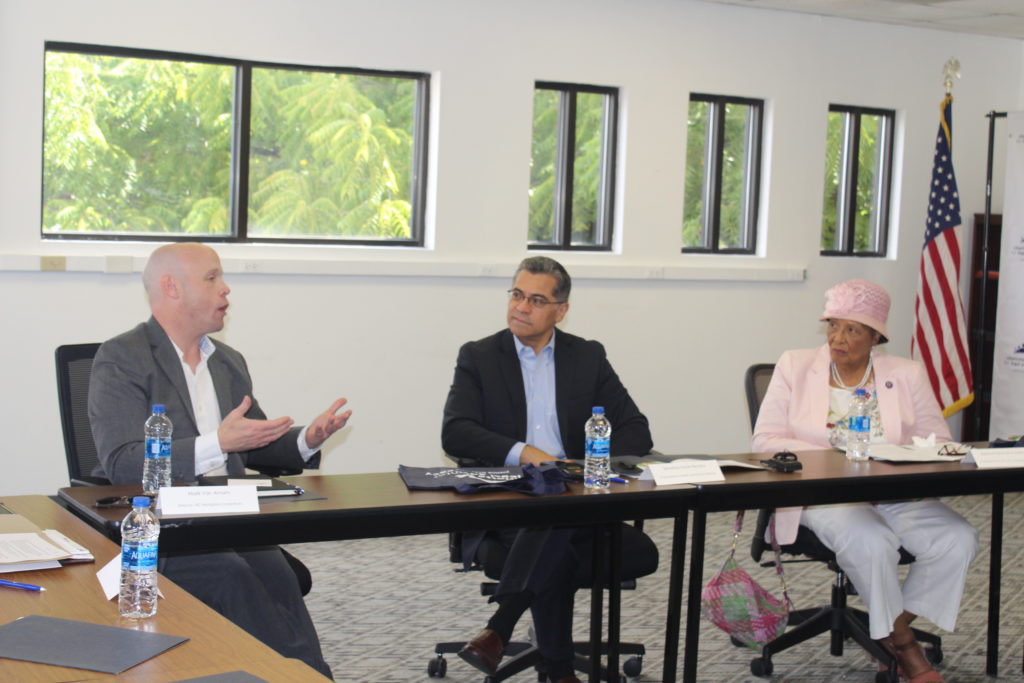The fight to protect our community’s most vulnerable renters continues.
Thanks to your advocacy, a measure to take away tenants’ rights from motel renters was taken out of a regulatory reform bill in the N.C. General Assembly. But it has become a standalone bill moving forward in the N.C. Senate as HB 352 Hotel Safety Issues.
The bill is now before the Senate Judiciary Committee. If passed, HB 352 will drastically change the way people who live in motels are treated when it comes their rights as renters and significantly exacerbate the state’s affordable housing crisis.
Contact our Senate Judiciary Committee Members and urge them to reject this legislation
A reminder of what’s in the legislation:
The legitimate purpose of HB 352 is for the faster removal of criminal actors who reside at motels, an issue exposed after eviction moratoriums prevented motel owners from quickly removing residents during the COVID-19 pandemic.
However, the legislation would also eliminate tenant protections recognized by the N.C. Court of Appeals in Baker v. Rushing, a case litigated by Charlotte Center for Legal Advocacy under its old name, Legal Services of Southern Piedmont.
HB 352 would automatically re-classify all motel tenants as “transient guests” for the first three months of their leases regardless of their record of rental payments and good conduct. Doing so gives motel landlords unlimited power to punish and evict tenants who complain about living conditions such as rodent infestation, inoperable plumbing, HVAC issues, or noise.
Thanks to our efforts 30 years ago, N.C. law recognizes that motel residents, who are not tourists with a regular home elsewhere, have the same rights as tenants in conventional homes and apartments.
Those rights include a habitable dwelling with working plumbing, heat, and wiring along with the due process of a fair trial in cases of eviction.
Why it’s a problem:
Thousands of N.C. families rely on motels as the housing of last resort to avoid homelessness, especially in Charlotte, where there is an extreme shortage of affordable housing.
The pandemic has forced more families into this situation as people lost their jobs and could no longer afford traditional housing.
HB 352 would enable motel owners to evict already struggling residents, including children, and leave them with little to no chance of finding safe housing elsewhere.
For those with an eviction on their record, getting approved to rent an affordable place to live is extremely difficult.
HB 352 would needlessly increase our homeless population and strain public resources. In the event of another public health crisis, these residents will not be protected by measures implemented to ensure safe shelter just because they do not have conventional housing.
Further, the legitimate issue this bill is targeting can be handled through education on current N.C. law, which already protects landlords by permitting expedited evictions through the court system for criminal actors.
This legislation will further drive our state into crisis when it comes access to affordable housing.
As an advocate for low-income people, Charlotte Center for Legal Advocacy urges our representatives to reject this legislation and protect tenants’ rights for all North Carolinians.
What you can do
Contact members of the Senate Judiciary Committee and HB 352 sponsors. Tell them long-term motel residents have the same rights as traditional tenants and this harmful legislation should not become law.
HB 352’s sponsors are:
Rep. John R. Bradford, III
Rep. Timothy D. Moffitt
Rep. William O. Richardson
Rep. Jerry Carter
Rep. Chris Humphrey
Rep. Frank Iler
Rep. Jake Johnson
Rep. Jeffrey C. McNeely
Rep. Phil Shepard
Rep. John Szoka
Rep. Michael H. Wray


